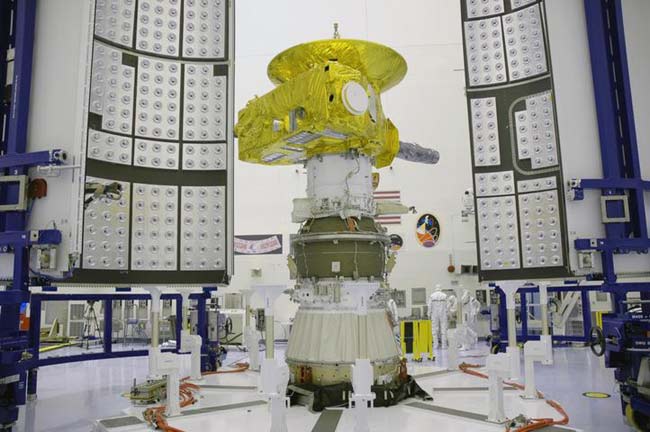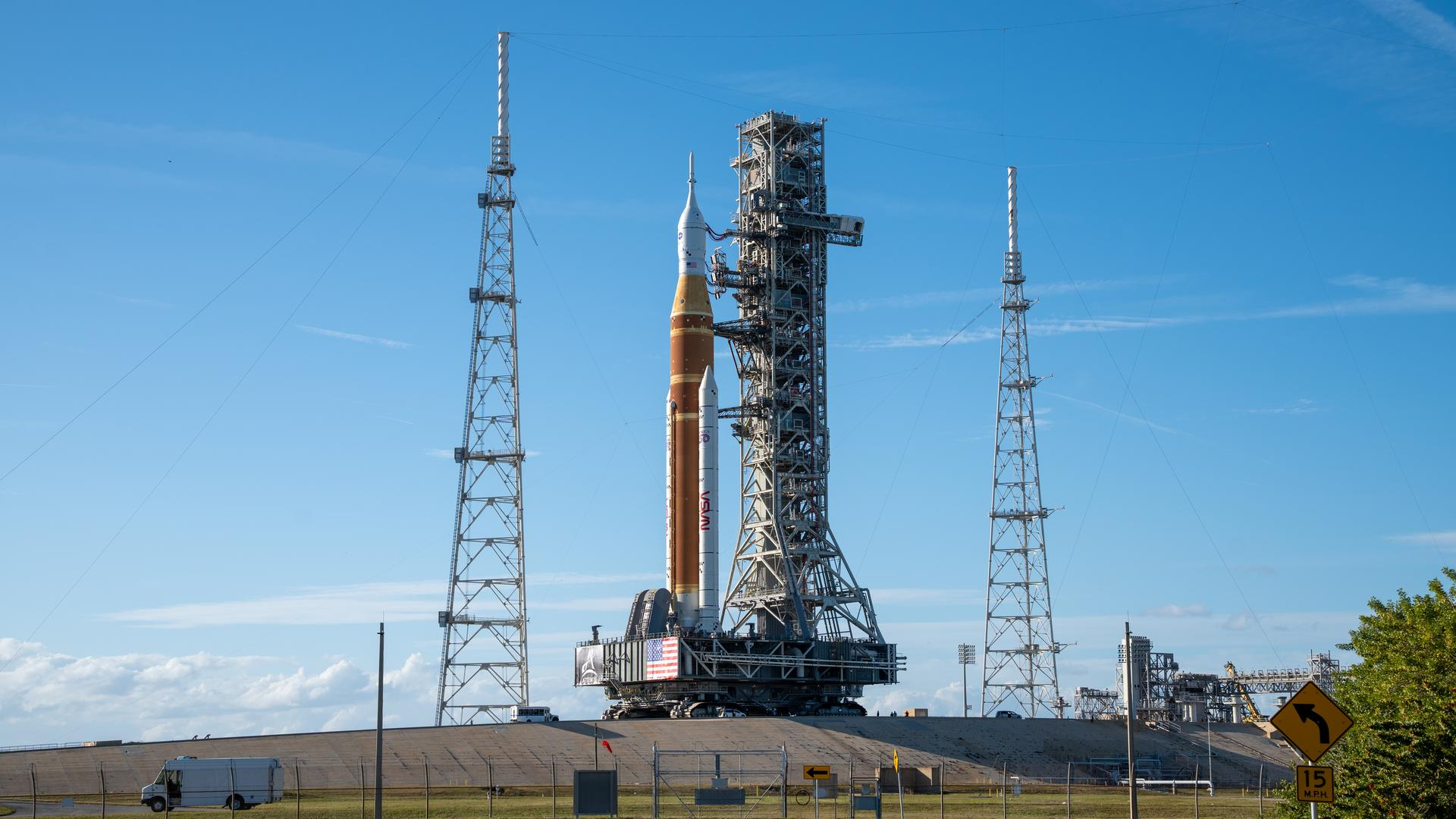For Scientist and Englishwoman, Pluto Mission is Precious

It is the firstever flight to Pluto and the first planetary flyby in decades, but for its leadscientist and one Englishwoman NASA's New Horizon mission will mark a milestonefor space exploration.
NewHorizons is set to launch on Jan. 17 atop an Atlas 5 booster and begin whatis hoped to be a nearly 10-year trip to Pluto, but just getting to the launchpad has been a feat of no small effort.
"If somebodywould have come to me 17 years ago and told me what a circuitous route it wouldtake to get to the launch pad, I would have never believed it," Alan Stern,principal investigator for the New Horizons mission, said in an interview.
The missionalso resonates with 87-year-old Epsom, England resident Venetia Burney Phairwho, as an 11-year-old girl in 1930, happened to mention to her grandfatherthat Pluto seemed a reasonable name for the then newly-discovered ninth planet.
"I think it'smarvelous that they can contemplate sending something quite so far away, and sosmall when you get to it," Phair said of the mission during a telephoneinterview. "I only hope nothing goes wrong."
Discoveredin 1930, Pluto orbits the Sun from an average distance of about 3.6 billionmiles (5.9 billion kilometers). New Horizons is set to swing past the planet in2015, if all goes well, and observe the distant world over a five-month period.
Pluto,the harbinger
Breaking space news, the latest updates on rocket launches, skywatching events and more!
Budgetclashes and fundingscrambles have dogged the mission's long development, but have not temperedits importance for planetary science, according to Stern.
"I callPluto the harbinger," he said, adding that the planet was the first hint thatlarge objects sat beyond Neptune. "And then it was found to have a bigsatellite, so it was the harbinger of giant impacts," Stern said of Pluto'smoon Charon, which is believed to have originated during a cataclysmiccollision.
Pluto markedthe first find in the KuiperBelt - a region icy objects extending out from the orbit of Neptune. In1988, astronomers discovered its thin atmosphere, with hints of exotic ices,and this year the Hubble Space Telescope picked up signs that Pluto may sport twoadditional moons, Stern said.
"It reallyis heralding ahead of its time, over and over again, the richness of whatnature did out there," Stern said.
With thediscovery of several new planethopefuls beyond Pluto, the Kuiper Belt is reshaping long-held beliefs on fundamentalplanetary science, making it even more imperative to send a probe and see what'sout there, he added.
"We'vediscovered that our entire view [of planets] is wrong," Stern said. "It's justjoyous to me."
What'sin a name
Phair, whohas followed Pluto's evolution from planet to ice dwarf to somewherein-between, said the honor of naming what has become a much-debated planetarose from sheer luck.
The subjectcame up over breakfast while Phair's - then Venetia Burney - grandfather readabout the new planet in their Oxford, England home, she said.
"I thoughtin the back of my head, why not call it Pluto," she said, adding that her classwas studying the planets at the time and she had already read about the differentRoman gods. "It's stuck with me all this time, so it must have been a goodlesson."
Phair saidher grandfather passed the suggestion Pluto - the Roman god of the underworld -on to Oxford University professor Herbert Hall Turner, and it eventually madeits way to Lowell Observatory in Flagstaff, Arizona, where Clyde Tombaugh usedto discover the planet in 1930.
"It wasextremely lucky," Phair said. "And it's been extremely amusing for me to hearfrom all sorts of people."
The debateover Pluto'splanethood status, and now over what constitutes a planet in general, hasbeen somewhat amusing for Phair.
"It'sextraordinary," she said of Pluto. "The more they downgrade it, the morepublicity it seems to have. I think the whole mission is very exciting and I'vealways said that I'm lucky to have lived to now to see it."
Centennialsandwich
For Stern,the timing of New Horizons seems particularly apt.
The probe'slaunch window runs mostly between two key dates, beginning with the 100thanniversary of the birth of Gerard Kuiper (Dec. 7) - the Dutch-American astronomerwho first postulated that debris from the solar system sat outside Neptune'sorbit. At the other end of the launch window, Feb. 4 to be exact, is the 100thanniversary of the birth of Tombaugh, who discovered Pluto 75 years ago on Feb.18.
"Here weare with a launch date that perched right between these centennials," Sternsaid, adding that family members of both Tombaugh and Kuiper plan to be presentfor New Horizons' launch.
"This isreally the completion of the initial reconnaissance of the planets, even thoughwe know that most of the planets haven't been discovered yet," Stern said. "Thisis really a marker."
- Pluto-Bound Probe Ready For Long Journey
- New Discoveries Await Out on the Horizon
- New Horizons: Voyage To The Edge Of The Solar System

Tariq is the award-winning Editor-in-Chief of Space.com and joined the team in 2001. He covers human spaceflight, as well as skywatching and entertainment. He became Space.com's Editor-in-Chief in 2019. Before joining Space.com, Tariq was a staff reporter for The Los Angeles Times covering education and city beats in La Habra, Fullerton and Huntington Beach. He's a recipient of the 2022 Harry Kolcum Award for excellence in space reporting and the 2025 Space Pioneer Award from the National Space Society. He is an Eagle Scout and Space Camp alum with journalism degrees from the USC and NYU. You can find Tariq at Space.com and as the co-host to the This Week In Space podcast on the TWiT network. To see his latest project, you can follow Tariq on Twitter @tariqjmalik.
